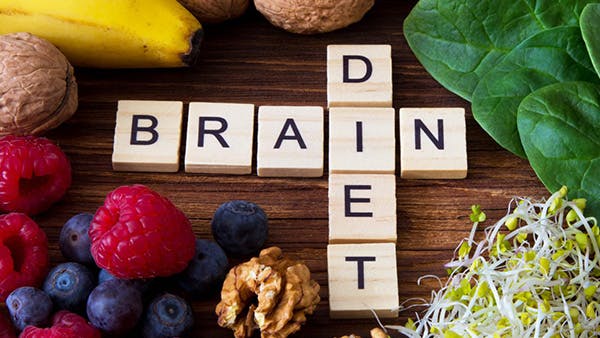The Best Foods To Eat To Naturally Lift Your Mood

The Connection Between Food and Mood

Have you ever noticed how your mood can change after eating a certain type of food? It turns out that there is a strong connection between what we eat and how we feel. Numerous studies have shown that our diet can have a significant impact on our mental well-being.
One of the ways in which food can affect our mood is through the production of neurotransmitters in our brain. Neurotransmitters are chemicals that help transmit signals between nerve cells, and they play a crucial role in regulating our mood. For example, serotonin is a neurotransmitter that is often referred to as the “feel-good” hormone because it helps to regulate our mood and promote feelings of happiness and well-being. Interestingly, certain nutrients found in food can help to boost the production of serotonin in our brain, leading to an uplift in mood.
Understanding the Role of Nutrients in Boosting Mood
The connection between what we eat and how we feel is a topic that has garnered significant attention in recent years. As researchers delve deeper into the relationship between food and mood, it becomes increasingly clear that the nutrients we consume play a crucial role in boosting our overall mental well-being.
A key player in this intricate dance is the brain chemical serotonin. Serotonin is known as the “feel-good” neurotransmitter, as it helps regulate mood, sleep, and appetite. To create serotonin, our bodies require certain nutrients, such as tryptophan, vitamin B6, and magnesium. By ensuring we have an adequate intake of these nutrients through our diet, we can support the production of serotonin and subsequently enhance our mood.
Various studies have shown the impact of nutrients on mood enhancement. For instance, a study published in the American Journal of Psychiatry found that omega-3 fatty acids, commonly found in fatty fish like salmon and mackerel, may help alleviate symptoms of depression. Another study published in the Journal of Affective Disorders reported that consuming foods rich in antioxidants, such as berries and dark chocolate, was associated with a lower risk of experiencing depressive symptoms.
While more research is needed to fully understand the intricacies of the food-mood relationship, there is mounting evidence to suggest that the nutrients we consume play a significant role in boosting our mood. By incorporating a wide range of nutrient-rich foods into our diet, we can nourish not only our bodies but also our minds, paving the way for a happier and healthier life.
The Benefits of Incorporating Omega-3 Fatty Acids into Your Diet
Omega-3 fatty acids, particularly eicosapentaenoic acid (EPA) and docosahexaenoic acid (DHA), are essential fats that are crucial for brain health and overall well-being. Incorporating omega-3 fatty acids into your diet can have several benefits for boosting your mood and mental health.
Research studies have shown a positive association between omega-3 fatty acid intake and improved symptoms of depression and anxiety. Omega-3 fatty acids have been found to play a role in neurotransmitter function in the brain, specifically increasing the levels of serotonin – a neurotransmitter commonly known as the “feel-good” chemical. By enhancing the production and availability of serotonin, omega-3 fatty acids can help regulate mood and improve overall mental well-being.
Additionally, omega-3 fatty acids have anti-inflammatory properties that can benefit mental health. Chronic inflammation in the body has been linked to an increased risk of depression and other mood disorders. The anti-inflammatory effects of omega-3 fatty acids can help reduce inflammation in the brain and improve symptoms of depression and mood disorders.
Including foods rich in omega-3 fatty acids in your diet is an excellent way to ensure you are receiving an adequate intake of these essential fats. Fatty fish like salmon, mackerel, and sardines are excellent sources of omega-3s. Plant-based sources include flaxseeds, chia seeds, and walnuts. Alternatively, omega-3 supplements, such as fish oil capsules, are available for those who may not consume enough through their diet.
While omega-3 fatty acids can offer significant benefits for mood and mental health, it is essential to remember that they work best as part of a balanced and nutritious diet. Incorporating a variety of nutrient-dense foods along with omega-3s can provide your body and mind with all the necessary building blocks for optimal function and well-being.
How Foods Rich in Antioxidants Can Enhance Mood
Antioxidants play a crucial role in enhancing mood by helping to reduce oxidative stress in the body. Oxidative stress occurs when there is an imbalance between harmful free radicals and the body’s ability to neutralize them. This imbalance can lead to cell damage and inflammation, which may negatively impact mental well-being.
Foods rich in antioxidants, such as fruits, vegetables, and whole grains, can provide a significant boost to mood by combating oxidative stress. These foods contain various antioxidants, including vitamins C and E, as well as flavonoids and carotenoids. These compounds act as powerful scavengers, neutralizing free radicals and protecting cells from damage. Additionally, research suggests that a diet high in antioxidants is associated with a lower risk of depression and anxiety. Therefore, incorporating a variety of antioxidant-rich foods into your daily diet can promote a happier and more balanced mindset.
• Antioxidants help reduce oxidative stress in the body, which can enhance mood.
• Oxidative stress occurs when there is an imbalance between harmful free radicals and the body’s ability to neutralize them.
• Cell damage and inflammation caused by oxidative stress can negatively impact mental well-being.
• Foods rich in antioxidants, such as fruits, vegetables, and whole grains, combat oxidative stress and boost mood.
• These foods contain vitamins C and E, flavonoids, and carotenoids that act as powerful scavengers of free radicals.
• Research suggests that a diet high in antioxidants is associated with a lower risk of depression and anxiety.
• Incorporating antioxidant-rich foods into your daily diet promotes a happier and more balanced mindset.
The Impact of Complex Carbohydrates on Serotonin Production
Complex carbohydrates, often found in foods such as whole grains, legumes, and vegetables, play a vital role in the production of serotonin in the body. Serotonin is a neurotransmitter that helps regulate mood, sleep, and appetite. When we consume complex carbohydrates, they are broken down into glucose, which is then used by the brain to produce serotonin.
Research has shown that a diet rich in complex carbohydrates can lead to increased serotonin production and improved mood. One study conducted on healthy adults found that those who consumed a high-carbohydrate diet reported feeling happier and more satisfied than those who followed a low-carbohydrate diet. Another study, which focused on individuals with depression, found that a diet high in complex carbohydrates reduced depressive symptoms and improved overall well-being.
The reason behind this connection lies in the ability of complex carbohydrates to increase the availability of tryptophan in the brain. Tryptophan is an amino acid that acts as a precursor to serotonin. When we consume complex carbohydrates, insulin is released, which allows more tryptophan to enter the brain and be converted into serotonin. This increased production of serotonin helps to regulate mood and promote a positive mental state.
Including Probiotics in Your Diet for a Happier Mindset
Probiotics are live bacteria and yeasts that are good for your overall health, particularly your digestive system. These friendly microorganisms help maintain a balanced gut microbiome, which is essential for optimal physical and mental well-being. Studies have shown a strong correlation between a healthy gut and a happier mindset, as the gut is often referred to as our “second brain.”
Research suggests that probiotics can positively impact mood and mental health by influencing the production of neurotransmitters such as serotonin, dopamine, and gamma-aminobutyric acid (GABA). These neurotransmitters play a crucial role in regulating mood, emotions, and stress responses. By enhancing the production of these mood-regulating chemicals, probiotics may help reduce symptoms of anxiety, depression, and even improve cognitive function. Additionally, probiotics have been found to have anti-inflammatory effects, which can further contribute to a healthier mental state.
It’s important to note that not all probiotic strains have the same effects on mood and mental health. Research is ongoing to determine which specific strains are most beneficial for improving mood and overall well-being. As with any dietary supplement, it is recommended to consult with a healthcare professional or a registered dietitian to determine the right probiotic product and dosage for your individual needs. Incorporating probiotics into your diet, whether through fermented foods like yogurt and sauerkraut or through supplementation, may offer potential benefits for achieving a happier mindset.
The Importance of B Vitamins in Mood Regulation
B vitamins play a crucial role in maintaining our overall well-being, and they also have a significant impact on our mood regulation. These essential vitamins help support the production of neurotransmitters in the brain, such as serotonin and dopamine, which are responsible for regulating our mood and emotions.
One of the key B vitamins involved in mood regulation is vitamin B6, also known as pyridoxine. This vitamin is involved in the synthesis of neurotransmitters, including serotonin, which is often referred to as the “happy hormone.” Serotonin is known for its mood-enhancing effects and plays a vital role in promoting feelings of happiness and well-being. Vitamin B6 also helps convert tryptophan, an amino acid found in protein-rich foods, into serotonin.
Another essential B vitamin for mood regulation is vitamin B12, or cobalamin. Research has shown that a deficiency in vitamin B12 can lead to symptoms of depression and mood disorders. This vitamin plays a crucial role in the production of neurotransmitters and the maintenance of a healthy nervous system. It helps keep our nerve cells functioning properly and supports the synthesis of DNA, which is essential for the production of new cells.
In conclusion, B vitamins are essential for maintaining a balanced mood and promoting overall mental well-being. Vitamin B6 and B12, in particular, play crucial roles in neurotransmitter synthesis and nerve cell function. Incorporating foods rich in B vitamins, such as leafy green vegetables, legumes, lean meats, and fortified cereals, into our diet can help ensure an adequate intake of these important nutrients to support mood regulation.
Why You Should Include Foods High in Magnesium for Mood Enhancement
Foods that are high in magnesium offer numerous benefits for mood enhancement. Magnesium plays a crucial role in the brain’s biochemistry by regulating neurotransmitters and influencing brain function. A deficiency in magnesium can lead to symptoms such as irritability, anxiety, and depression. By incorporating foods rich in magnesium into your diet, you can potentially improve your overall mood and well-being.
One of the primary reasons why magnesium-rich foods are important for mood enhancement is their ability to support the production of serotonin, the “feel-good” neurotransmitter. Serotonin helps regulate mood, emotions, and sleep patterns. Foods such as almonds, spinach, avocados, and dark chocolate are excellent sources of magnesium. Including these foods in your daily diet can help increase your magnesium levels and promote a more positive mental state.
In addition to its role in serotonin production, magnesium also plays a vital role in reducing stress and anxiety. It helps regulate cortisol, a hormone that is released in response to stress. Research has shown that magnesium supplementation can lead to a reduction in anxiety symptoms and an improvement in overall mood. By including magnesium-rich foods in your diet, you can provide your body with the nutrients it needs to manage stress effectively and promote a sense of calmness.
Overall, incorporating foods high in magnesium into your diet can have significant benefits for mood enhancement. By ensuring an adequate intake of this essential mineral, you may experience improved mood, reduced stress, and enhanced overall well-being.
The Mood-Boosting Effects of Dark Chocolate
Dark chocolate has gained popularity not only for its rich, indulgent flavor but also for its potential mood-boosting effects. Recent research suggests that consuming dark chocolate can have positive impacts on our mental wellbeing. One of the main reasons behind this is its high content of flavonoids, which are naturally occurring compounds with antioxidant properties. These flavonoids have been found to have a positive influence on mood by reducing inflammation and improving blood flow to the brain.
In addition to flavonoids, dark chocolate also contains small amounts of a compound called phenylethylamine (PEA), which is known to trigger the release of endorphins in the brain. Endorphins are neurotransmitters that promote feelings of happiness and pleasure. So, indulging in a small piece of dark chocolate can not only satisfy our sweet tooth but also contribute to a temporary boost in mood. However, it is important to note that moderation is key, as excessive consumption of any food can have negative effects on our overall health.
The Role of Zinc in Promoting a Positive Mental State
Zinc, a trace element that plays a crucial role in numerous bodily functions, has been shown to have a significant impact on mental health and well-being. Research has indicated that zinc deficiency may contribute to the development of mood disorders, such as depression and anxiety. Several mechanisms have been proposed to explain the role of zinc in promoting a positive mental state.
Firstly, zinc is involved in the synthesis and regulation of neurotransmitters, the chemical messengers that transmit signals between nerve cells in the brain. It is particularly crucial for the synthesis of serotonin, a neurotransmitter that is widely known for its role in mood regulation. Studies have demonstrated that zinc supplementation can increase the levels of serotonin in the hippocampus, a brain region associated with memory and emotion. This suggests that zinc may exert its mood-enhancing effects by modulating serotonin levels in the brain. Additionally, zinc has been found to influence the activity of other neurotransmitters, including dopamine and gamma-aminobutyric acid (GABA), which are also involved in mood regulation.
Furthermore, zinc is a vital cofactor for various enzymes involved in antioxidant defense systems. Oxidative stress, which occurs when the body’s antioxidant defenses are overwhelmed by the presence of harmful free radicals, has been implicated in the development of mood disorders. Zinc’s antioxidant properties help protect the brain from oxidative damage and reduce inflammation, which may contribute to the maintenance of a positive mental state.
In conclusion, ensuring an adequate intake of zinc through the diet or supplementation may be beneficial in promoting a positive mental state. By influencing neurotransmitter synthesis and regulating antioxidant defense systems, zinc plays a vital role in maintaining optimal mental health. However, it is important to note that further research is needed to fully elucidate the mechanisms underlying zinc’s effects on mood and to determine the optimal dosages for supplementation.
Incorporating Foods with High Tryptophan Content into Your Diet
Tryptophan is an essential amino acid that plays a crucial role in the production of serotonin, a neurotransmitter that promotes feelings of happiness and well-being. Incorporating foods high in tryptophan into your diet can have a positive impact on your mood and overall mental health.
One excellent source of tryptophan is turkey. In addition to being a traditional holiday staple, turkey is also a lean source of protein that is rich in tryptophan. Other animal-based foods that contain tryptophan include chicken, eggs, and dairy products. For those following a vegetarian or vegan diet, plant-based sources of tryptophan include beans, lentils, tofu, and soy products.
When consumed as part of a well-balanced diet, foods high in tryptophan can provide the necessary building blocks for serotonin production, helping to elevate mood and promote a positive mental state. It is important to note that while tryptophan can be beneficial for mood enhancement, it is not a standalone solution for mental health issues. If you are experiencing persistent symptoms of depression or anxiety, it is essential to seek professional medical advice for a holistic approach to your mental well-being.
The Power of Vitamin D in Elevating Mood Naturally
Vitamin D plays a vital role in many aspects of our health, including mood regulation. Research has shown that low levels of vitamin D are associated with an increased risk of depression and other mood disorders. This essential vitamin regulates the production of serotonin, a neurotransmitter that is responsible for maintaining a positive mood.
One of the most effective ways to increase your vitamin D levels is through exposure to sunlight. When the skin is exposed to sunlight, it converts cholesterol into vitamin D. However, factors such as sunscreen use, limited sunlight exposure, and darker skin pigmentation can hinder the production of vitamin D. In such cases, it may be necessary to incorporate other sources of vitamin D into your diet. Foods such as fatty fish (e.g., salmon and mackerel), fortified dairy products, and egg yolks are excellent sources of this mood-enhancing vitamin. Additionally, vitamin D supplements can be a convenient option to help elevate your mood naturally.
(NOTE: This is a short section of an article and does not provide a conclusion)
How Iron-Rich Foods Can Help Alleviate Mood Disorders
Iron is an essential mineral that plays a crucial role in maintaining our overall health, including our mental well-being. Several studies have suggested a connection between iron deficiency and various mood disorders, such as depression and anxiety. The exact mechanisms behind this relationship are still being explored, but research indicates that iron deficiency may contribute to altered levels of neurotransmitters in the brain, including dopamine and serotonin, which are closely associated with mood regulation.
Incorporating iron-rich foods into your diet can help alleviate mood disorders by replenishing the body’s iron stores. Animal sources of iron, such as lean meats, poultry, and fish, are particularly rich in a form of iron called heme iron, which is highly bioavailable and easily absorbed by our bodies. Plant-based sources of iron, such as legumes, leafy green vegetables, and fortified cereals, contain non-heme iron, which is also beneficial but may require additional dietary factors, such as vitamin C, to enhance absorption. It is important to note that iron supplementation should only be pursued under medical supervision, as consuming too much iron can be harmful. Thus, incorporating iron-rich foods into a balanced diet can be an effective way to support mental well-being and provide nourishment for our body and mind.
Nourishing Your Body and Mind with a Balanced Diet
Maintaining a balanced diet is vital for the overall well-being of both your body and mind. When it comes to nourishing your body, consuming a varied and wholesome diet ensures that you receive essential nutrients that support optimal physical functions. However, the influence of a balanced diet extends beyond physical health, as it also plays a significant role in promoting mental wellness.
Research has shown that certain nutrients can have a direct impact on brain function and mood regulation. For example, omega-3 fatty acids, commonly found in fatty fish like salmon and sardines, have been associated with improved mood and reduced symptoms of depression. Additionally, foods rich in antioxidants, such as berries and dark leafy greens, can help combat oxidative stress and enhance overall mood.
By incorporating complex carbohydrates into your diet, you can also promote the production of serotonin, a neurotransmitter that helps regulate mood. Complex carbohydrates, like whole grains and legumes, provide a slow and steady release of glucose to the brain, leading to a more balanced mood throughout the day.
Including probiotics in your diet, such as yogurt and sauerkraut, can further boost your mental well-being. Probiotics are known to support a healthy gut microbiome, which has been linked to improved psychological health. The gut-brain connection suggests that by nurturing your digestive system, you can positively impact your mental state.
Furthermore, B vitamins, found in foods such as leafy greens, eggs, and whole grains, play a crucial role in mood regulation. These vitamins are involved in the synthesis of neurotransmitters like serotonin and dopamine, which are essential for maintaining a positive mental state.
Incorporating foods high in magnesium, such as nuts, seeds, and dark chocolate, into your diet can also enhance your mood. Magnesium is involved in numerous biochemical reactions in the brain, and maintaining adequate levels may help reduce symptoms of anxiety and depression.
It’s important to note that a balanced diet should also include foods rich in zinc, as this nutrient plays a crucial role in promoting a positive mental state. Foods like oysters, beef, and pumpkin seeds are excellent sources of zinc.
As you can see, nourishing your body and mind with a balanced diet goes beyond physical health. By incorporating foods that are rich in essential nutrients, you can support optimal brain function, enhance mood, and promote overall mental well-being.
What is the connection between food and mood?
The food we eat has a direct impact on our mood and overall mental well-being. Certain nutrients in our diet can influence the production of neurotransmitters, such as serotonin and dopamine, which play a crucial role in regulating mood.
How do nutrients boost mood?
Nutrients like omega-3 fatty acids, antioxidants, complex carbohydrates, and B vitamins provide essential components for the production and regulation of neurotransmitters, which can help improve mood and emotional stability.
What are the benefits of incorporating omega-3 fatty acids into my diet?
Omega-3 fatty acids, found in fatty fish, flaxseeds, and walnuts, have been shown to reduce symptoms of depression and promote brain health. Including these healthy fats in your diet can boost your mood and support overall mental well-being.
Can foods rich in antioxidants enhance mood?
Yes, foods rich in antioxidants, such as berries, dark chocolate, and green tea, can help enhance mood. Antioxidants protect the brain cells from oxidative stress and inflammation, which can positively impact mood and cognitive function.
How do complex carbohydrates impact serotonin production?
Complex carbohydrates, found in whole grains, legumes, and fruits, can stimulate the production of serotonin in the brain. Serotonin is a neurotransmitter that helps regulate mood and promotes a sense of well-being.
Why should I include probiotics in my diet for a happier mindset?
Probiotics are beneficial bacteria that promote a healthy gut microbiome. Research suggests that a healthy gut-brain connection is essential for optimal mental health, and consuming probiotics through foods like yogurt and fermented vegetables can positively affect mood and reduce symptoms of anxiety and depression.
What is the importance of B vitamins in mood regulation?
B vitamins, such as B6, B9 (folate), and B12, are essential for the production and synthesis of neurotransmitters involved in mood regulation. Including foods like leafy greens, legumes, and fortified cereals in your diet can help maintain stable mood levels.
Why should I include foods high in magnesium for mood enhancement?
Magnesium is a mineral that plays a crucial role in brain function and mood regulation. Including foods like spinach, almonds, and black beans, which are rich in magnesium, can help alleviate symptoms of depression and anxiety.
What are the mood-boosting effects of dark chocolate?
Dark chocolate contains flavonoids and other compounds that can stimulate the production of endorphins, which are known as “feel-good” hormones. Consuming small amounts of dark chocolate can improve mood and provide a temporary sense of happiness.
What is the role of zinc in promoting a positive mental state?
Zinc is an essential mineral that supports brain function and plays a role in neurotransmitter regulation. Including foods like oysters, pumpkin seeds, and beef in your diet can help maintain optimal zinc levels and promote a positive mental state.
How can foods with high tryptophan content benefit my mood?
Tryptophan is an amino acid that serves as a precursor for serotonin production. Foods like turkey, tofu, and seeds that are high in tryptophan can help increase serotonin levels, leading to improved mood and feelings of calmness.
What is the power of vitamin D in elevating mood naturally?
Vitamin D, often called the “sunshine vitamin,” is essential for brain health and has been linked to mood regulation. Spending time in the sun and consuming foods like fatty fish and fortified dairy products can help maintain optimal vitamin D levels and improve mood.
How can iron-rich foods help alleviate mood disorders?
Iron is necessary for the production of dopamine, a neurotransmitter that plays a crucial role in mood regulation. Consuming iron-rich foods like lean meats, spinach, and lentils can help alleviate symptoms of depression and improve overall mood.
How does a balanced diet nourish both the body and mind?
A balanced diet provides the necessary nutrients for physical health and mental well-being. By including a variety of nutrient-rich foods, you can support brain function, regulate mood, and promote overall mind-body wellness.






